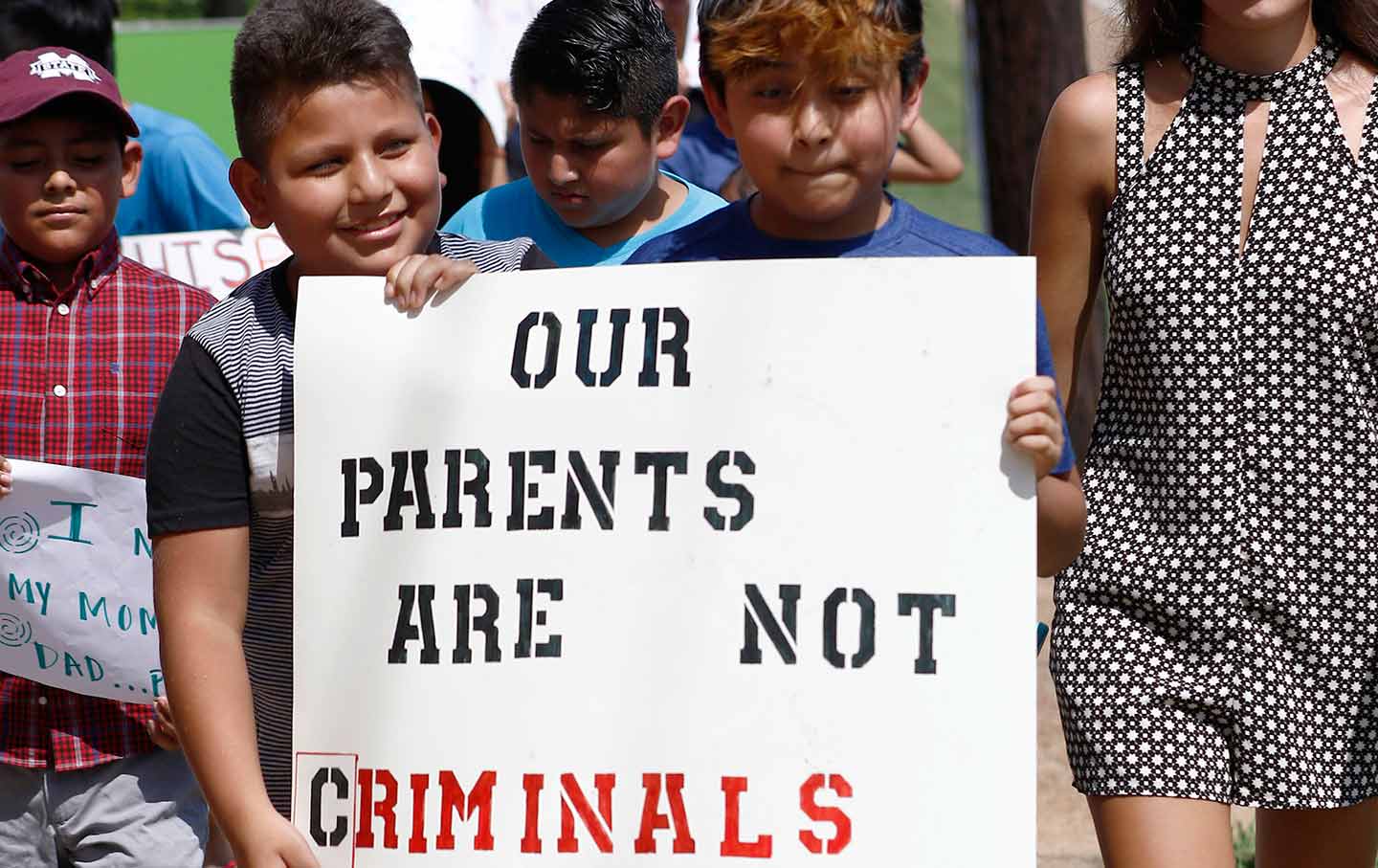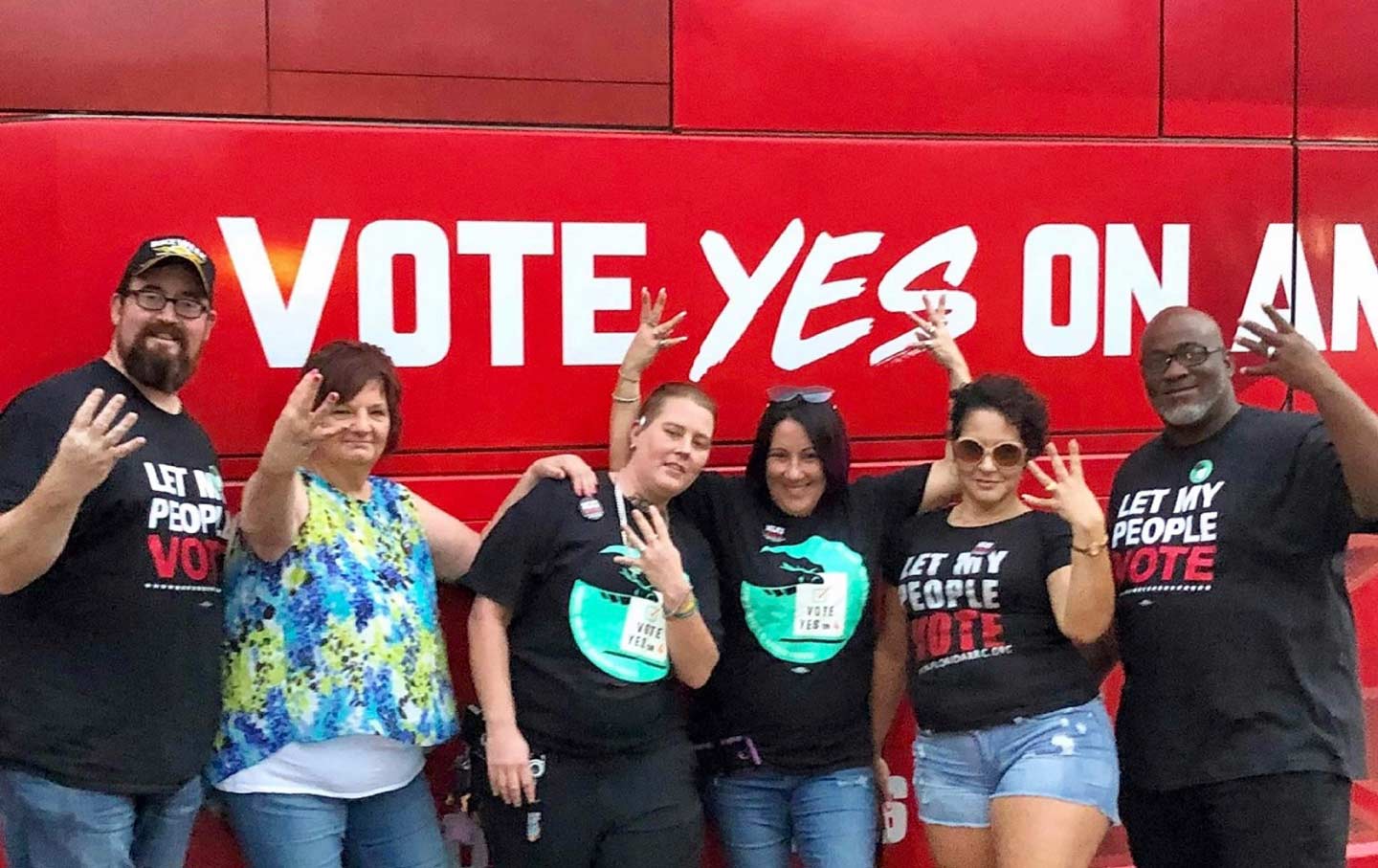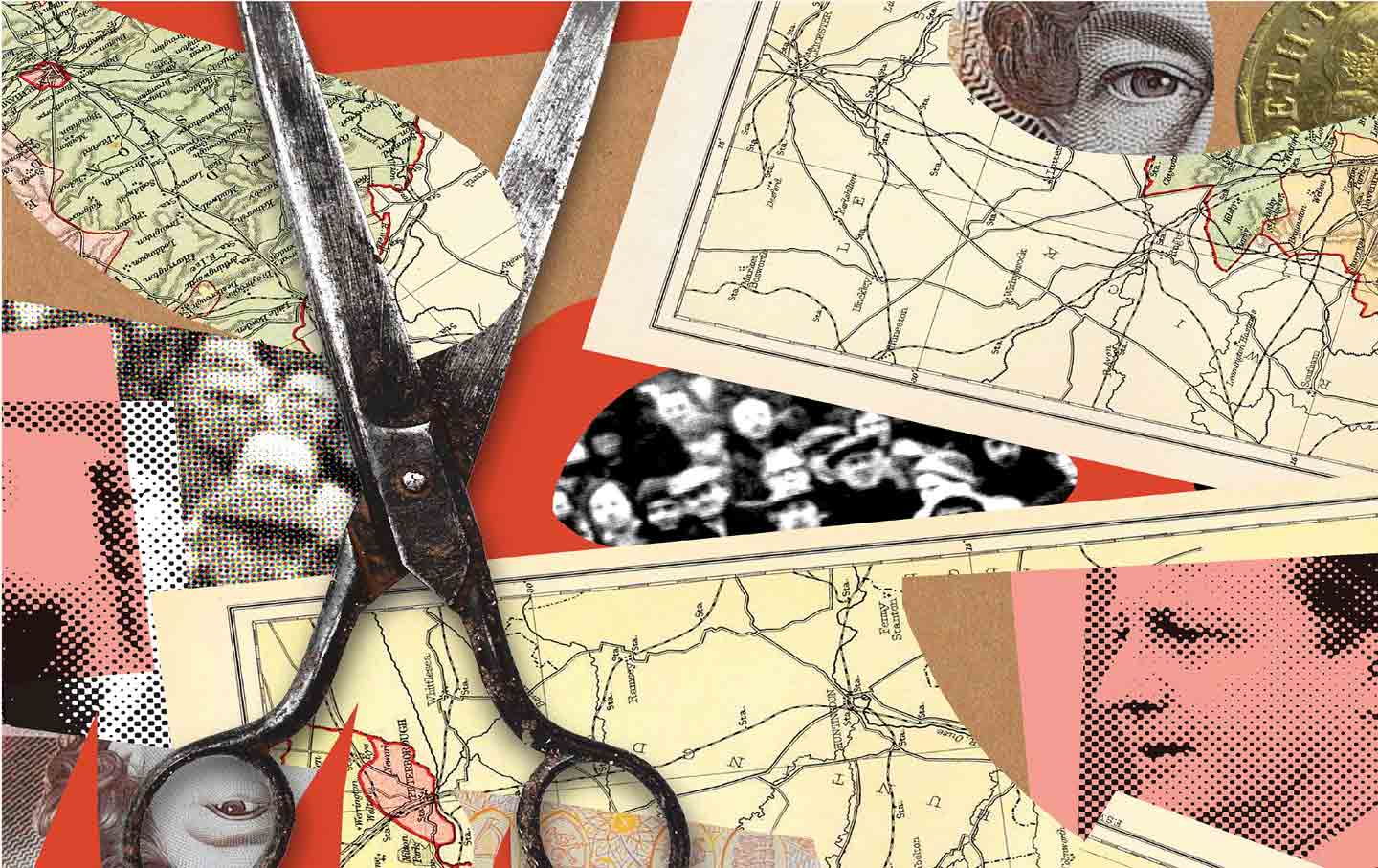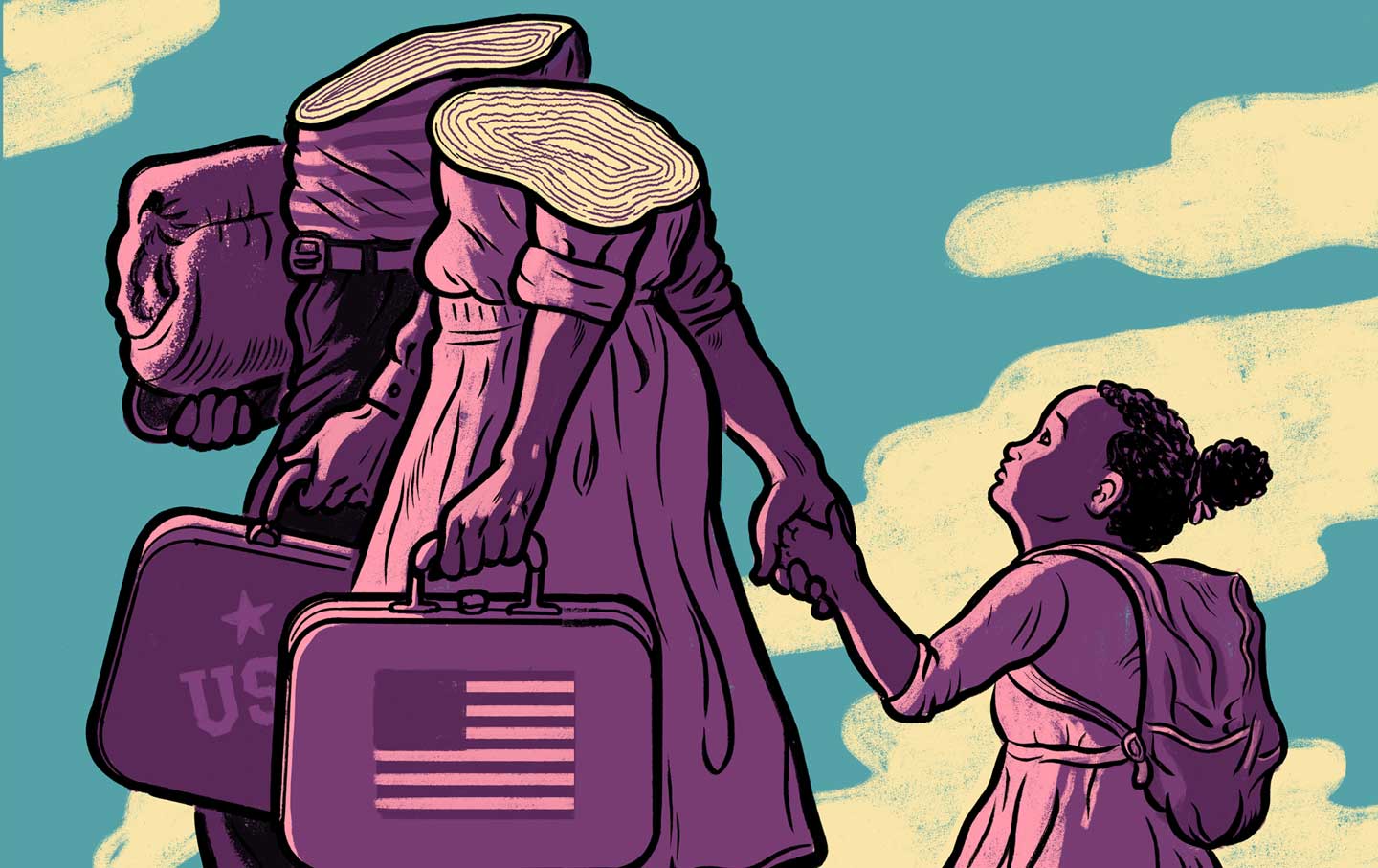
Child Abuse as Official Government Policy Child Abuse as Official Government Policy
That, plus Supreme Court clearance for a white-nationalist asylum policy, and GOP dirty tricks in North Carolina—all in a week’s work for the Trumpists.
Sep 13, 2019 / Sasha Abramsky

What’s Really Going on While Trump Creates Chaos What’s Really Going on While Trump Creates Chaos
We will not be distracted.
Sep 10, 2019 / Sasha Abramsky

President Trump Has Legalized Concentration Camps President Trump Has Legalized Concentration Camps
The administration’s new rules will eviscerate key features of the landmark 1997 Flores decision, which mandates protections for immigrant children.
Aug 23, 2019 / Sasha Abramsky

With Trump’s New ‘Public Charge’ Rules, the War on Immigrants Just Got a Whole Lot Worse With Trump’s New ‘Public Charge’ Rules, the War on Immigrants Just Got a Whole Lot Worse
They will allow immediate deportation of millions of immigrants who receive government benefits.
Aug 12, 2019 / Sasha Abramsky

Trump Is Dumping Asylum Seekers on American Streets—but Solidarity Activists Are Fighting Back Trump Is Dumping Asylum Seekers on American Streets—but Solidarity Activists Are Fighting Back
“It’s a humanitarian issue. We will not allow an atrocity to occur in our community.”
Jul 1, 2019 / Feature / Sasha Abramsky

The Florida GOP’s Assault on Democracy The Florida GOP’s Assault on Democracy
Last fall, voters overwhelmingly passed a referendum giving the vote back to felons who complete their sentences. Now the legislature is trying to block it.
Jun 18, 2019 / Feature / Sasha Abramsky

The Price of Austerity in England The Price of Austerity in England
Savage cuts in social services have put county councils in crisis.
Mar 14, 2019 / Feature / Sasha Abramsky

Why Does Trump Want to Terminate Temporary Protected Status? Why Does Trump Want to Terminate Temporary Protected Status?
He plans to expel hundreds of thousands of refugees who have become productive members of American society. But they’re fighting back.
Jan 25, 2019 / Feature / Sasha Abramsky

Why Were These Interfaith Leaders Arrested at the US-Mexico Border? Why Were These Interfaith Leaders Arrested at the US-Mexico Border?
They were dragged away by the Border Patrol for bearing prophetic witness against the mistreatment of refugees and asylum seekers.
Dec 11, 2018 / Sasha Abramsky

Trump Is Provoking a Full-Blown Constitutional Crisis Trump Is Provoking a Full-Blown Constitutional Crisis
We must resist his vow to end birthright citizenship by massive, militant, coordinated action.
Nov 1, 2018 / Sasha Abramsky
